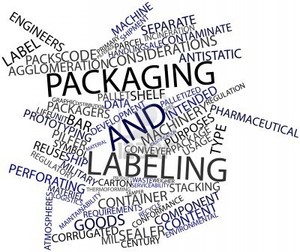The Alliance for Safe Biologic Medicines (ASBM) has published the results of a survey determining the opinions of US pharmacists about the naming and labelling of biosimilars [1].
ASBM asked 401 US pharmacists for their views on the naming and labelling of biosimilar medicines. Over half of these pharmacists (60%) worked in hospitals or the healthcare system, while 40% worked in retail. The surveys were carried out in the run up to the release of guidance from the US Food and Drug Administration (FDA) on the non-proprietary naming of biological products [2].
An earlier survey of the views of European physicians on familiarity of biosimilar medicines had demonstrated the need for distinguishable non-proprietary names to be given to all biologicals [3]. There have been calls around the world for clear regulation in this area [4, 5].
FDA issued its final guidance on the non-proprietary naming of biological products in January 2017 [2]. In the months running up to this announcement, ASBM invited 3,525 pharmacists in the US to complete a study on the naming and labelling of biologicals. A total of 849 responded, which were screened to leave 401 US pharmacists who dispensed biological medicines. These 401 pharmacists were asked for their feedback on an earlier draft non-proprietary biologicals naming proposal that had been issued by FDA in August 2015.
FDA has said a non-proprietary name should be assigned for all originator biologicals, related biologicals and biosimilars that includes an FDA-designated suffix. The ‘proper name’ will consist of a combination of the ‘core name’ and distinguishable suffix, which will be devoid of meaning and be composed of four lowercase letters [6].
Of the 401 pharmacists who completed the survey, 68% responded that FDA should require a distinct non-proprietary scientific name for every biological product – originator or biosimilar – approved by them. A total of 77% of respondents thought that a manufacturer-specific suffix should be included in the name of each biological product.
The pharmacists surveyed considered it very important to include on the product label clinical data to support whether or not the product was a biosimilar and information regarding whether or not the biosimilar and originator are interchangeable.
The results of this survey of pharmacists are consistent with those of a survey of physicians in Europe [2]. In both surveys, respondents believed that products sharing a non-proprietary name could be considered identical, could be expected to produce the same results, could be used interchangeably and would be approved for all the indications of the reference product.
Likewise, the findings echo those of a recent survey sponsored by the Academy of Managed Care Pharmacy (AMCP) [7]. In the AMCP study, over 60% of participants reported preferring a biosimilar naming convention that uses either a designated suffix or prefix preferably based on the manufacturer.
The pharmacists who responded to this ASBM survey were supportive of biosimilar products being labelled specifically as such, with the clear inclusion of what a biosimilar product is. They also largely agreed there should also be clear information about the analytical studies and clinical studies used for the approval of the product. In cases where the biosimilar is not approved for all indications of the reference product, this should be clearly indicated where these indications are based on extrapolation of the indications approved for the reference product, and whether the biosimilar is interchangeable.
Key points of the 2015 pharmacists naming and labelling survey
- All items queried in the labelling survey were considered very important for label inclusion
- The fact that a drug was a biosimilar was considered the most important; whether or not it was interchangeable was slightly less important.
- 68% of pharmacist respondents thought FDA should require a distinct non-proprietary scientific name for every biological product – whether originator or biosimilar – that FDA had approved. 23% of pharmacists did not, and 8% had no opinion.
- 77% of pharmacist respondents would prefer a suffix on the non-proprietary name, which is indicative of the product’s manufacturer; only 8% of pharmacists had no opinion. 15% of pharmacists thought a random suffix that does not indicate the manufacturer – as recently proposed by FDA – would be best.
Related article
US prescribers’ views on the naming and labelling of biologicals
References
1. Naming and labelling of biologicals – the perspective of hospital and retail pharmacists. Generics and Biosimilars Initiative Journal (GaBI Journal). 2016;5(4):151-5. doi:10.5639/gabij.2016.0504.040
2. GaBI Online - Generics and Biosimilars Initiative. FDA issues final guidance on naming biologicals [www.gabionline.net]. Mol, Belgium: Pro Pharma Communications International; [cited 2017 Apr 13]. Available from: www.gabionline.net/Guidelines/FDA-issues-final-guidance-on-naming-biologicals
3. O Dolinar R, Reilly MS. Biosimilars naming, label transparency and authority of choice – survey findings among European physicians. Generics and Biosimilars Initiative Journal (GaBI Journal). 2014;3(2):58-62. doi:10.5639/gabij.2014.0302.018
4. Azevedo et al. Recommendations for the regulation of biosimilars and their implementation in Latin America. Generics and Biosimilars Initiative Journal (GaBI Journal). 2014;3(3):143-8. doi:10.5639/gabij.2014.0303.032
5. Abas et al. Regulation of biologicals in Malaysia. Generics and Biosimilars Initiative Journal (GaBI Journal). 2014;3(4):193-8. doi:10.5639/gabij.2014.0304.044
6. Jensen AR. US FDA proposals for naming of biologicals and labelling of biosimilars. Generics and Biosimilars Initiative Journal (GaBI Journal). 2016;5(3):140-3. doi:10.5639/gabij.2016.0503.036
7. Tomaszewski D. Biosimilar naming conventions: pharmacist perceptions and impact on confidence in dispensing biologics. J Manag Care Spec Pharm. 2016;22(8):919-26.
Permission granted to reproduce for personal and non-commercial use only. All other reproduction, copy or reprinting of all or part of any ‘Content’ found on this website is strictly prohibited without the prior consent of the publisher. Contact the publisher to obtain permission before redistributing.
Copyright – Unless otherwise stated all contents of this website are © 2017 Pro Pharma Communications International. All Rights Reserved.








 0
0











Post your comment